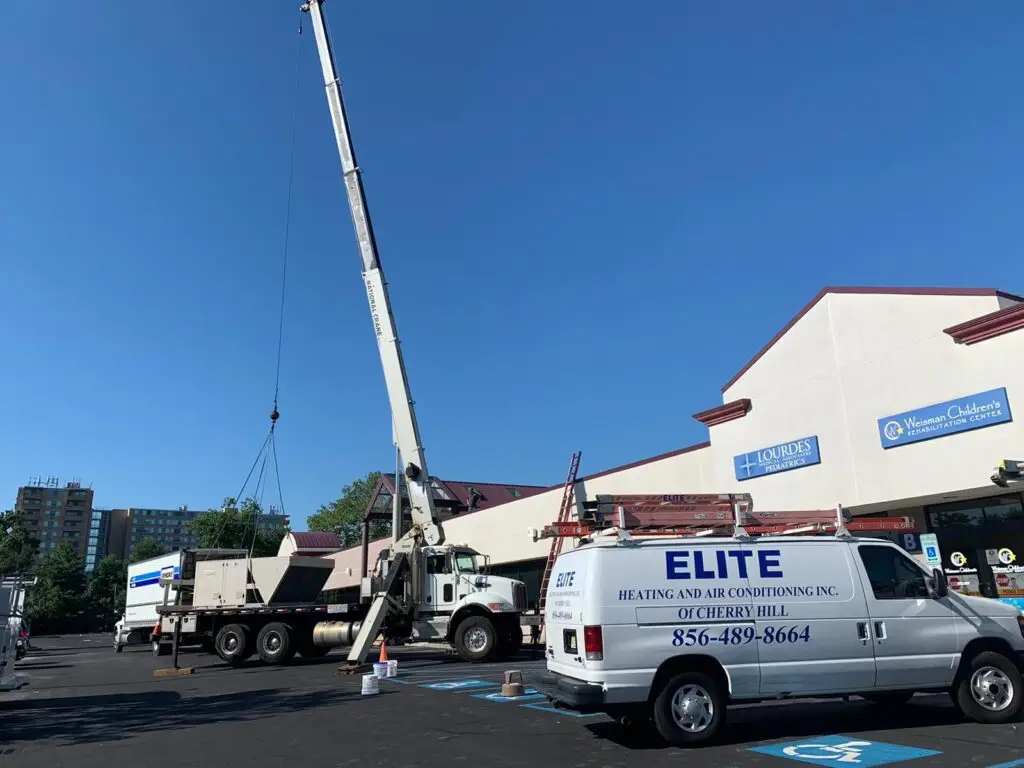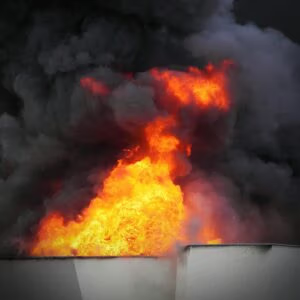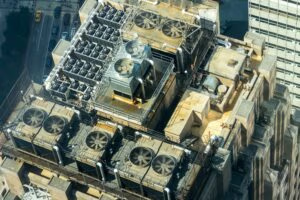Why Your Commercial AC Isn’t Working: Common Causes and Solutions
When a commercial air conditioning system stops working, it can lead to uncomfortable temperatures, employee dissatisfaction, and even lost productivity. In industrial and large-scale commercial settings, AC units are complex systems that handle significant cooling loads, making any breakdown more than just an inconvenience. Here, we’ll explore the top reasons why your commercial AC may stop working and the steps to take for a quick and effective solution.
Electrical Issues
Electrical issues are among the most common causes of commercial AC breakdowns. Complex wiring in large systems is susceptible to faults that can lead to sudden shutdowns. In commercial settings, high power demands during peak hours may cause breakers to trip or even damage circuit boards over time.
- Quick Check: Check the breaker panel to see if any circuits have tripped. A simple reset may resolve minor issues, but repeated trips indicate a larger problem that requires professional assessment.
- Professional Solution: If electrical issues persist, consult an HVAC technician experienced in commercial systems. They can identify specific electrical failures, replace faulty parts, and ensure your AC system is safely operational.
Thermostat Malfunctions
Commercial thermostats, which often control multiple zones, play a critical role in maintaining consistent cooling across large spaces. When a thermostat malfunctions, it may misread temperatures or fail to communicate effectively with the AC unit, causing it to stop working or cool inefficiently.
- Quick Check: Ensure the thermostat settings match the desired temperature for your space. If the thermostat is blank or displaying an error code, consult the unit’s manual to reset it.
- Professional Solution: A technician can re-calibrate, repair, or replace a thermostat that isn’t functioning correctly, helping to restore comfort in your business environment.
Clogged Air Filters
Air filters in commercial AC systems can accumulate dust, debris, and airborne contaminants faster than residential units, especially in industrial settings. Clogged filters restrict airflow, causing the AC to work harder and eventually overheat or shut down.
- Quick Check: Check the filter for visible dirt or debris. Clean or replace filters regularly to maintain smooth airflow.
- Professional Solution: Regular professional maintenance can prevent clogs from affecting AC performance. HVAC experts will replace filters and check other key areas prone to dust buildup, ensuring clean air circulation throughout your property.
Refrigerant Leaks
Refrigerant is essential for cooling, and leaks can prevent your system from reaching the desired temperature. Commercial AC systems with low refrigerant levels often struggle to cool large areas effectively and may even freeze up over time.
- Quick Check: Signs of low refrigerant include poor cooling performance, longer cooling cycles, and unusual hissing sounds near the AC unit.
- Professional Solution: Only a certified technician can handle refrigerant. They’ll locate the source of the leak, make necessary repairs, and recharge the system to restore full cooling capability.
Mechanical Wear and Tear
Large AC systems involve many moving parts, and normal wear and tear is expected over time, particularly for older units. Components like fans, belts, and motors may become damaged or wear out, leading to inefficiency or complete breakdowns.
- Quick Check: Listen for any unusual noises, like grinding or squealing, which could indicate mechanical issues.
- Professional Solution: An HVAC specialist can inspect the internal components, replace damaged parts, and recommend future upgrades to prevent further breakdowns.
When to Call a Professional
While minor issues can often be handled in-house, problems with electrical components, refrigerant levels, and complex mechanical parts require the expertise of a professional commercial HVAC technician. Attempting DIY repairs on such issues can lead to further damage or potential safety hazards.
FAQs
Repair costs vary widely depending on the issue. Minor repairs like a thermostat fix might be relatively inexpensive, while more extensive repairs involving electrical or refrigerant issues could be higher. It’s best to get an estimate from a qualified commercial HVAC service provider.
Absolutely. Regular maintenance is essential to prevent sudden breakdowns and extend the life of your system. Preventative maintenance contracts are a great option for businesses to ensure their AC units remain in peak condition year-round.
If your AC repeatedly trips the breaker, it indicates an underlying issue such as electrical faults, power surges, or motor problems. Avoid resetting the breaker multiple times, as this can lead to further damage; instead, contact an HVAC technician to inspect the unit.
Elite HVAC
Commercial AC systems are vital to maintaining a productive and comfortable environment in any business setting. While minor issues may be resolved quickly, significant breakdowns often require professional assistance to ensure safe and effective repairs. With preventative maintenance and timely repairs, you can minimize the risk of unexpected downtime and keep your commercial property comfortable year-round.
For expert commercial AC repair services, contact Elite Heating and Air Conditioning, New Jersey’s trusted name in HVAC solutions for businesses.

- AC not working, AC repair near me, commercial AC repair, commercial air conditioning service, HVAC troubleshooting


